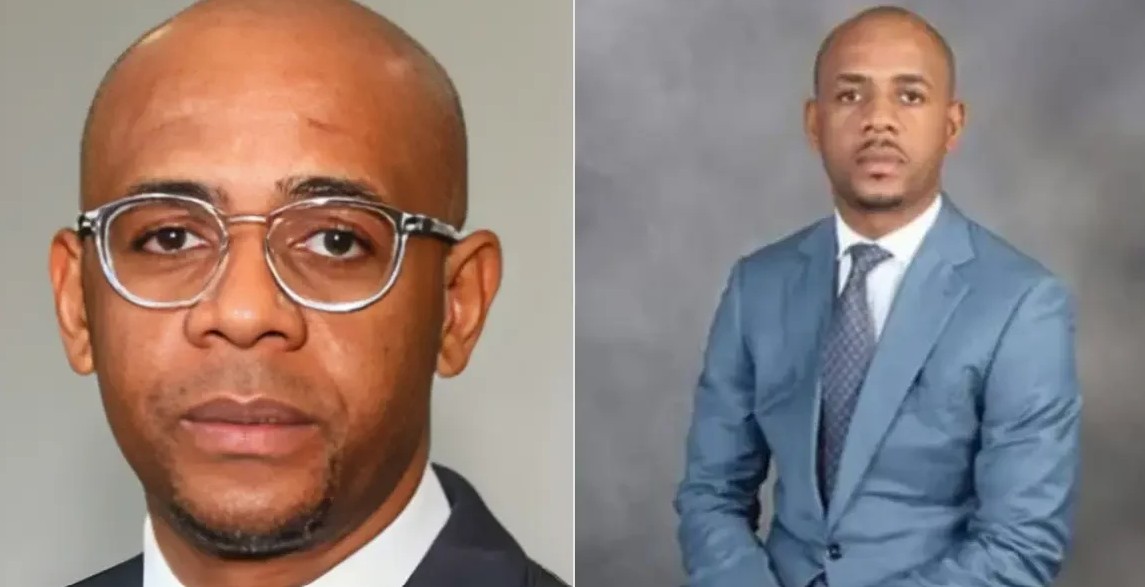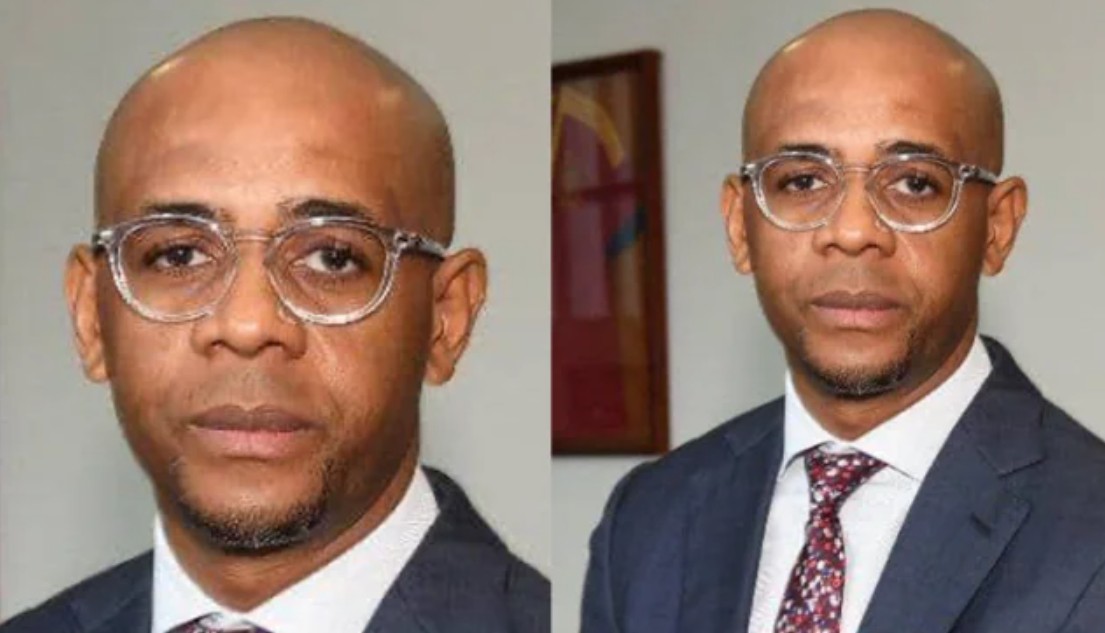The Balthazar Ebang Engonga video scandal has emerged as one of the most controversial and widely discussed incidents in Equatorial Guinea in recent years. The term refers to a series of sensitive and explicit videos linked to Balthazar Ebang Engonga, a high-ranking government official, which were discovered during a corruption investigation in late 2024. The scandal quickly attracted international attention due to the involvement of prominent figures and the shocking nature of the content.

The controversy has not only captivated the public’s curiosity but also raised serious questions about accountability, ethics, and transparency within the political elite of Equatorial Guinea. Media outlets around the world covered the unfolding events, highlighting the severity of the allegations and the potential ramifications for the country’s leadership.
Beyond the sensational aspects, the Balthazar Ebang Engonga video scandal has broader social and political significance. It exposed systemic issues of power abuse and corruption, sparking debates on governance, public trust, and the influence of social media in disseminating sensitive information. As a result, the scandal has become a symbol of the challenges Equatorial Guinea faces in upholding both legal standards and moral accountability among its officials.
Contents
Background of Balthazar Ebang Engonga and the Video Scandal
Balthazar Ebang Engonga is a prominent government official in Equatorial Guinea, known for holding influential positions within the national administration. Over the years, he has been involved in key decision-making processes and has maintained close ties with senior political figures, giving him considerable sway in governmental affairs. His public image had long been associated with authority and prestige, making the scandal even more shocking to both local citizens and the international community.
Balthazar Ebang Engonga Video Scandal Shocks Equatorial Guinea and the World
balthazar-ebang-engonga-video-1.mp4
balthazar-ebang-engonga-video-2.mp4
balthazar-ebang-engonga-video-3.mp4
balthazar-ebang-engonga-video-4.mp4
balthazar-ebang-engonga-video-5.mp4
balthazar-ebang-engonga-video-6.mp4
balthazar-ebang-engonga-video-7.mp4
balthazar-ebang-engonga-video-8.mp4
balthazar-ebang-engonga-video-9.mp4
balthazar-ebang-engonga-video-10.mp4
balthazar-ebang-engonga-video-11.mp4
balthazar-ebang-engonga-video-12.mp4
balthazar-ebang-engonga-video-13.mp4
balthazar-ebang-engonga-video-14.mp4
balthazar-ebang-engonga-video-15.mp4
balthazar-ebang-engonga-video-16.mp4
balthazar-ebang-engonga-video-17.mp4
balthazar-ebang-engonga-video-18.mp4
balthazar-ebang-engonga-video-19.mp4
balthazar-ebang-engonga-video-20.mp4
balthazar-ebang-engonga-video-21.mp4
balthazar-ebang-engonga-video-22.mp4
balthazar-ebang-engonga-video-23.mp4
balthazar-ebang-engonga-video-24.mp4
balthazar-ebang-engonga-video-25.mp4
balthazar-ebang-engonga-video-26.mp4
balthazar-ebang-engonga-video-27.mp4
balthazar-ebang-engonga-video-28.mp4
balthazar-ebang-engonga-video-29.mp4
balthazar-ebang-engonga-video-30.mp4
balthazar-ebang-engonga-video-31.mp4
balthazar-ebang-engonga-video-32.mp4
balthazar-ebang-engonga-video-33.mp4
balthazar-ebang-engonga-video-34.mp4
balthazar-ebang-engonga-video-35.mp4
balthazar-ebang-engonga-video-36.mp4
balthazar-ebang-engonga-video-37.mp4
balthazar-ebang-engonga-video-38.mp4
balthazar-ebang-engonga-video-39.mp4
balthazar-ebang-engonga-video-40.mp4
The Balthazar Ebang Engonga video scandal came to light during an extensive anti-corruption investigation initiated by the government. Authorities discovered hundreds of explicit videos stored on his personal devices, some involving individuals connected to other high-ranking officials. The investigation aimed initially to uncover financial mismanagement and embezzlement but unexpectedly revealed the sensitive content that would ignite widespread outrage.
This discovery not only exposed Engonga’s private misconduct but also highlighted potential abuses of power and ethical lapses within Equatorial Guinea’s political elite. The investigation served as a turning point, drawing global media attention and prompting calls for stricter oversight and accountability in government operations.
Details of the Video Scandal
The Balthazar Ebang Engonga video scandal revolves around the discovery of a large collection of illegal and explicit videos linked to Balthazar Ebang Engonga, a high-ranking government official in Equatorial Guinea. These videos were uncovered during a broader investigation into government corruption and embezzlement, and their content quickly became the focal point of public outrage.
Authorities found over 400 videos stored on Engonga’s personal devices, featuring material that involved several women connected to other senior government figures. The videos were deemed highly sensitive, not only due to their explicit nature but also because they implicated individuals holding influential positions within the political hierarchy. The combination of private misconduct and the involvement of politically connected figures amplified the scandal, raising serious ethical and legal concerns.

The public reaction was immediate and intense. Citizens expressed outrage over the abuse of power, while social media platforms buzzed with discussions, leaks, and debates. International media outlets reported extensively on the scandal, emphasizing both the shocking content and the broader implications for governance and accountability in Equatorial Guinea. Analysts highlighted how the scandal underscored systemic issues of corruption, lack of oversight, and the potential dangers of unchecked power among the political elite.
In summary, the Balthazar Ebang Engonga video scandal is not only a matter of private misconduct but also a reflection of broader societal and political vulnerabilities. The combination of explicit content, high-profile involvement, and media scrutiny made it a defining event in the country’s recent political history.
Legal Actions and Consequences
Following the discovery of the Balthazar Ebang Engonga video, authorities in Equatorial Guinea launched a formal legal investigation to determine the extent of Engonga’s misconduct and any associated criminal activities. The court proceedings were closely monitored by both local and international media, reflecting the high-profile nature of the case.
Balthazar Ebang Engonga was ultimately tried at the Bioko Court, where prosecutors presented evidence of his illegal activities, including the possession of explicit material involving politically connected individuals and embezzlement linked to the scandal. The court found Engonga guilty, sentencing him to eight years in prison and imposing a fine of 125.4 million CFA francs (approximately 190,000 euros). These penalties marked a significant legal precedent, highlighting the judiciary’s willingness to hold high-ranking officials accountable.
The investigation also extended to other government officials who were implicated indirectly through the scandal. Several individuals connected to the videos or to related financial misconduct faced administrative suspension and further inquiries. The case underscored a broader effort by the Equatorial Guinean government to address corruption and misuse of power, even at the highest levels.
Overall, the legal actions and consequences surrounding the Balthazar Ebang Engonga video scandal reinforced the importance of accountability and transparency in governance. The verdict served as a stark warning to other officials, while also signaling to the public and international observers that unethical conduct by political elites would face serious repercussions.
Government Response
In response to the Balthazar Ebang Engonga video scandal, the Equatorial Guinea government took several immediate measures to control the situation and mitigate public backlash. Authorities implemented stricter oversight of internet usage, temporarily reducing bandwidth and restricting access to certain online platforms where the videos were being shared. These measures were aimed at preventing further dissemination of the explicit content while authorities conducted their investigations.
Additionally, the government carried out targeted arrests and administrative suspensions of officials directly or indirectly implicated in the scandal. Policy changes were also introduced to strengthen internal monitoring of government employees, especially regarding ethical conduct and the handling of sensitive information.
Official statements from government spokespeople emphasized that the scandal would not be tolerated and reaffirmed the administration’s commitment to upholding the law. These statements aimed to reassure both citizens and international observers that decisive action was being taken to restore public trust and ensure accountability within the political system.
Public Reaction
The Balthazar Ebang Engonga video scandal triggered intense public reaction across both local and international platforms. Social media became a central space for discussion, with citizens expressing outrage over the abuse of power and ethical violations. Hashtags and trending topics related to the scandal highlighted widespread condemnation and demanded justice for those involved.
International media extensively covered the events, drawing attention to Equatorial Guinea’s governance challenges and the broader implications for political accountability. Diplomatic observers noted the potential impact on the country’s international reputation and its relationships with foreign governments and organizations.
For citizens, the scandal intensified debates on government transparency and ethics. Many questioned the integrity of political leaders and called for reforms to prevent similar abuses of power in the future. The combination of public outrage, media scrutiny, and international attention made the scandal a defining moment for civic discourse in Equatorial Guinea, emphasizing the crucial need for accountability in public office.
Implications for Equatorial Guinea
The Balthazar Ebang Engonga video scandal carries far-reaching political, social, and ethical implications for Equatorial Guinea. Politically, the involvement of a high-ranking government official in such a scandal undermines the credibility of the ruling administration and raises serious questions about oversight, integrity, and accountability within the political elite. The case has exposed vulnerabilities in governance structures, highlighting the need for stronger checks and balances to prevent abuses of power.
Socially, the scandal has sparked widespread debate among citizens about ethics, personal conduct, and the responsibilities of public officials. Public outrage reflects a growing demand for transparency and moral accountability in government, signaling a shift toward greater civic engagement and scrutiny of leaders’ actions.
Ethically, the scandal underscores the consequences of power misuse and the importance of protecting individuals from exploitation. The sensitive nature of the videos and the involvement of politically connected individuals emphasize the urgent need for ethical standards and strict enforcement within public institutions.
In terms of long-term impact, the scandal may influence public trust, eroding confidence in the government’s ability to govern transparently. Internationally, it could affect diplomatic relations and the country’s reputation, particularly as media coverage highlighted issues of corruption and misconduct at the highest levels. Overall, the scandal serves as a cautionary tale about the repercussions of unchecked power and the critical importance of integrity in public office.
The Balthazar Ebang Engonga video scandal stands as one of the most significant and controversial events in recent Equatorial Guinean history. From the discovery of hundreds of explicit videos to the subsequent legal proceedings and government responses, the scandal has exposed systemic challenges related to power, ethics, and accountability.
Key lessons from this incident emphasize the necessity of stringent oversight, ethical conduct, and transparency in governance. Preventive measures, such as stricter regulations for public officials, monitoring of sensitive activities, and robust judicial enforcement, are critical to avoiding similar incidents in the future.
Ultimately, the scandal highlights that accountability and transparency are not optional in governance—they are essential for maintaining public trust, ensuring ethical conduct, and upholding the credibility of political institutions. The Balthazar Ebang Engonga video case serves as a stark reminder of the consequences when these principles are neglected and reinforces the ongoing need for integrity at all levels of government.

